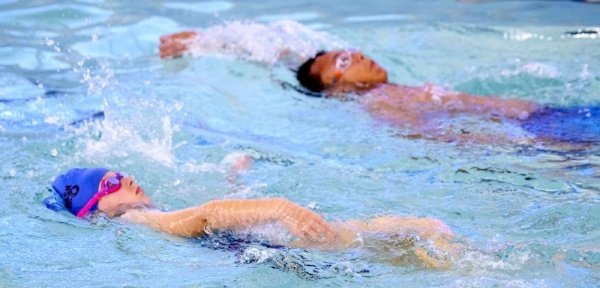Browsing the internet last night, I stumbled upon a news story of people who died by drowning. Shocking right? Drowning is the 3rd leading cause of unintentional injury death worldwide, accounting for 7% of all injury-related deaths according to WHO.
This got me thinking that these deaths could have been averted if people had learned the art of swimming, hence the discussion above. Aside from the fact that swimming is unarguably one of the best forms of exercise for anyone looking to keep themselves physically and emotionally fit, it should also be included in every school curriculum.
According to the CEO of Water Safety New Zealand, Jonty Mills, “having a school pool is like having a classroom specifically for aquatic education.” Therefore swimming lessons can be an important part of your schools daily activity for the following reasons:
- Safety

Swimming is an important skill that everyone should learn as part of safety measures. Drowning is one of the most frequent reasons for death among individuals around the world, learning how to swim can prevent this to a large extent.
As a teacher in school, if you know how to swim, you could offer to teach your pupils. Even if the pupils aren’t interested in learning competitive swimming, for the sake of water-accident survival, learning can be a good thought.
2. Better Academic Performance

Swimming can be an important part of your daily school activity for your students and/or pupils as it helps boost their concentration and confidence level. Even though there is no relationship between a child’s academic performance and swimming, it can indirectly help them to learn better in many ways.
With this skill, they can learn to face challenges that require critical thinking and solve them. They can also learn the subtle art of multi-tasking and coordination through swimming such as taking notes and listening to a lecture in a classroom without lagging.
3. Health and Physical Fitness

Swimming can be a great aid in improving the overall balance of the body. In trying to keep the body healthy, regular swimming can have a great role in maintaining mental health too. It can help students enhance their focus and ability to retain memories which aid academic excellence.
4. Actively Social

Including swimming in your school’s curriculum helps kids get engaged in teamwork and socialize better from a young age. Although learning how to swim at the very beginning can be very scary for kids, once they overcome their fears, they find fun in it.
5. Lifelong Skill

Swimming is a skill that once learned becomes a part of you. If you learned swimming from a very young age, it can help you stay fit emotionally, mentally, and physically for a long time.
Including swimming activities in school can aid minimize disability and enhance the quality of life in old age as it can be equally and easily practiced by an older adult with minimal risks of injury thus improving joints and lifting mood.
6. A Source of Income

The best part of learning how to swim is that it can be a great source of revenue for both schools and students, as having a structured and well-organized swimming scheme can create massive income for a leisure center. Students who learn from a young age how to swim can also become future Olympic winners, lifeguards, or teachers.
Conclusion:
If kids start learning this sport from their early days, they can maintain good posture and overall stamina and flexibility. Thus contributing to improving their emotional health and well-being and serving as a source of income for both schools and students.
